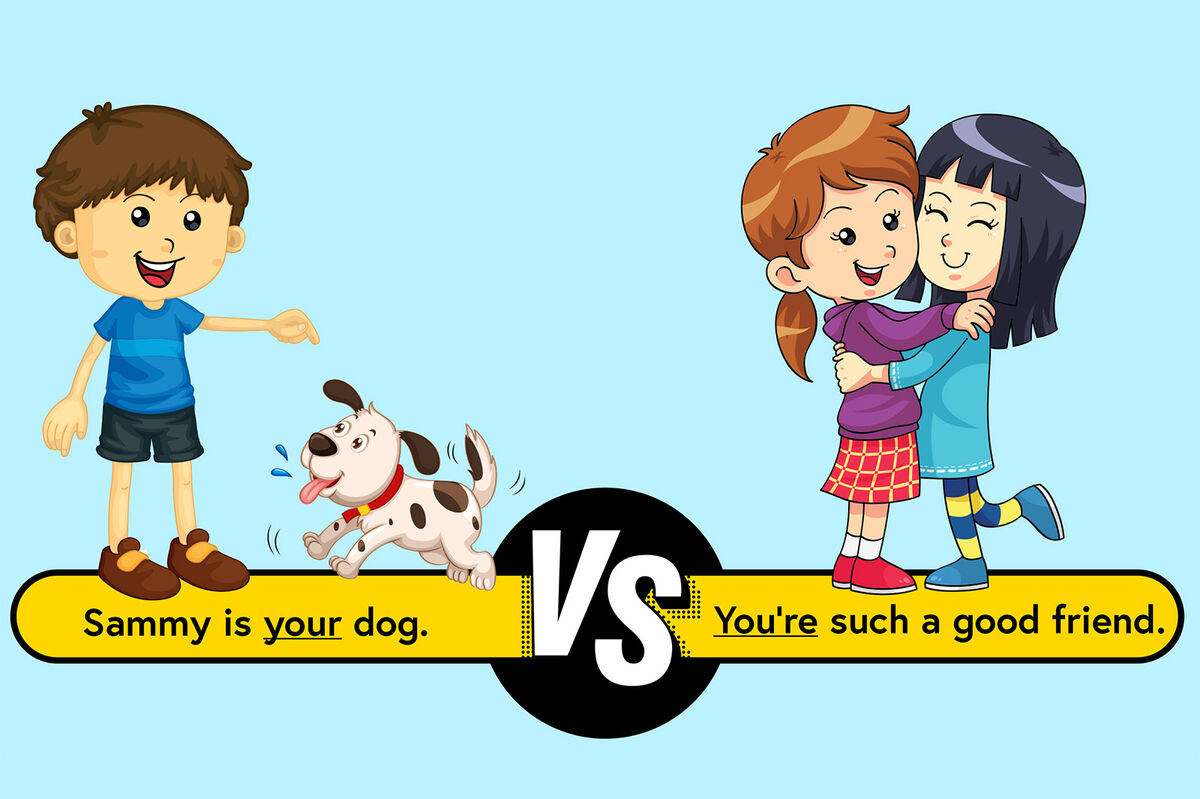
“Your” and “you’re” are examples of homophones, because the two words sound the same, but are spelled differently and mean different things. Learn when to use “your” and “you’re” in a sentence with an easy explanation of each word, as well as several fun examples.
Simple Explanation of “Your”
Basic Examples Using “Your”
The basic use of “your” is to describe something that belongs to you.
- Your boots are on the wrong feet.
- I like your new shirt.
- Your dog is so cute!
- I can’t believe your mom said that.
- Remember to bring your notebook.
- How did you fit all your homework in your backpack?
- When you get to town, your favorite restaurant is on your right.
- Your painting is amazing.
- How did you drop your phone in the toilet?
- I’m not your babysitter.
Formal Examples Using “Your”
The word “your” can also be used for certain formal titles, as may be the case with royalty or high-ranking officials.
- Your Honor
- Your Majesty
- Your Highness
- Your Excellency
Informal Use of “Your”
“Your” can also be used in an informal way where it describes something familiar. In this case, “average” comes after “your” as in “I’m not your average bear” or “That’s not your average pizza.”
- I’m not your average bear. - There is something different about this bear compared to normal bears.
- That’s not your average pizza. - That pizza has something weird or atypical on it.
Simple Explanation of “You’re”
“You’re” is a contraction, or a word made by combining two different words. If you combine “you” and “are,” you get “you’re,” so “you’re” simply means “you are.”
You’re says "you are."
Examples Using “You’re”
Verbs, or action words, usually (but not always) come after “you’re” in a sentence because “you’re” describes something you are doing.
- You’re coming with me right now!
- I can’t believe you’re going to Spain!
- You’re such a good friend.
- Did you know you’re my best friend?
- I’m glad you’re coming to my party.
- Make sure you’re going to be on time.
- You’re usually late to class.
- He told me that you’re quitting the band.
- Is it true you’re buying a snake?
- Why didn’t you say you’re upset?
Examples Comparing “Your” and “You’re”
When you use “your” and “you’re” in identical sentences, it’s easy to see what each word means.
- You’re Grandma - You are Grandma, so someone calls you “Grandma.”
Your grandma - The person you call “Grandma.”
- You’re welcome - You are welcome. Someone wants you to be here.
Your welcome - The way you were greeted when you arrived.
- You’re right - You are correct.
Your right - Toward the right side of your body.
- You’re President - You are the President.
Your President - Donald Trump is the President of the United States where you live.
What Are You Trying to Say?
Funny memes can also help you contextualize the difference between your and you’re.
Your/You’re Dead Meat Meme
If someone is threatening you, they could say, “You’re dead meat.” If you are the butcher in the second image, all that dead meat belongs to you.
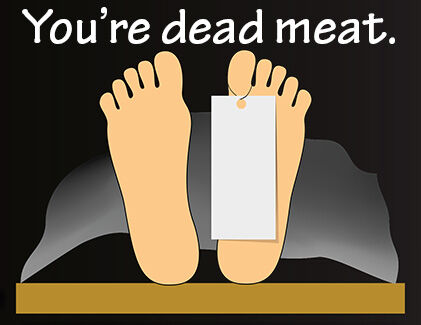
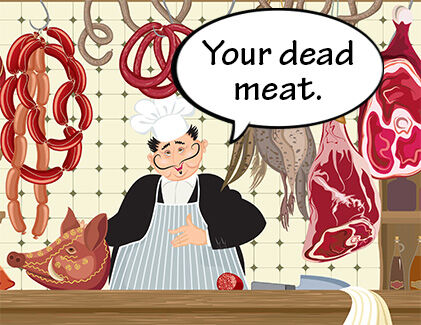
Your/You’re Dinner Meme
“Your dinner” is the food you are about to eat for dinner. “You’re dinner” means someone is going to eat you for dinner.
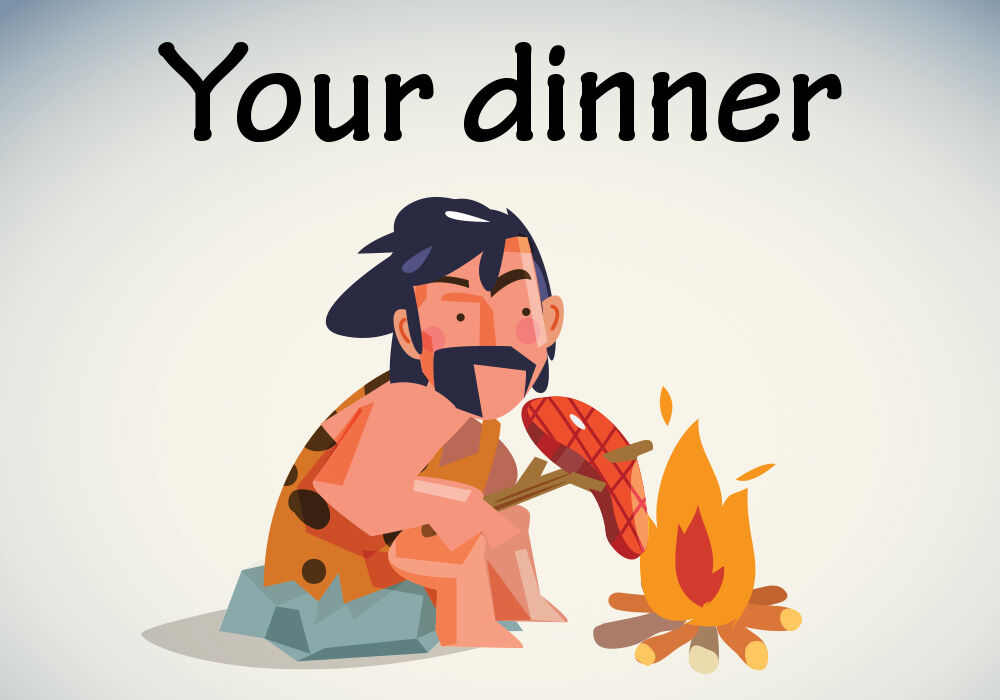
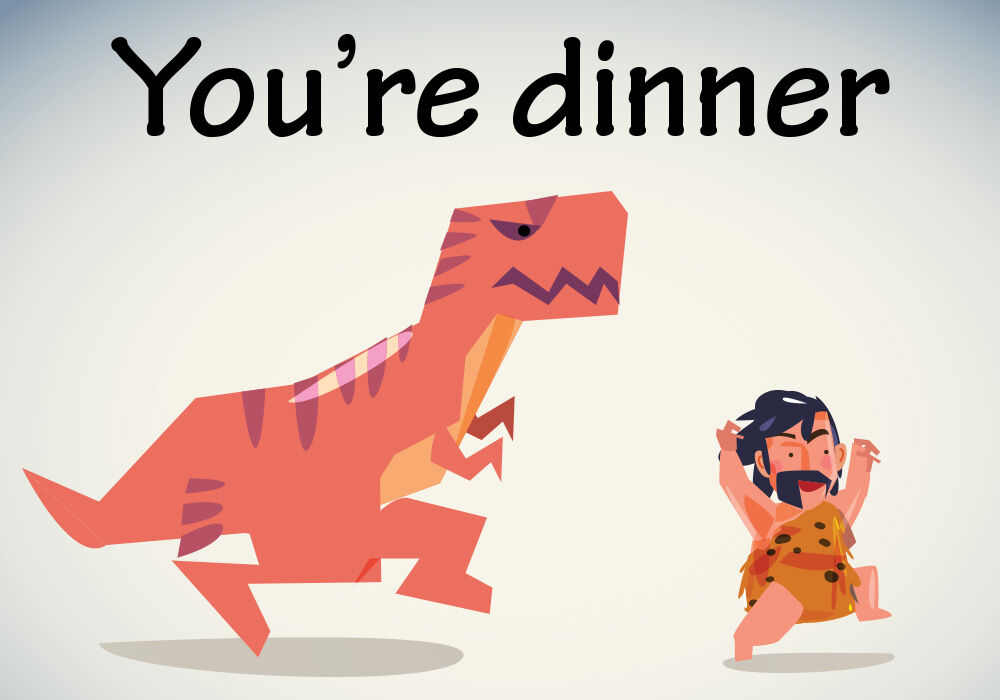
“Your” Versus “You’re”
Teaching or learning to properly use “your” and “you’re” isn’t hard; it just takes some practice. These two words are commonly confused by ESL students, so take the time to thoroughly explain each word and explore examples. Use a commonly confused words worksheet to practice what you’ve learned.
Once you’ve mastered this lesson, take a basic English grammar test to see how much you know about other grammar topics.